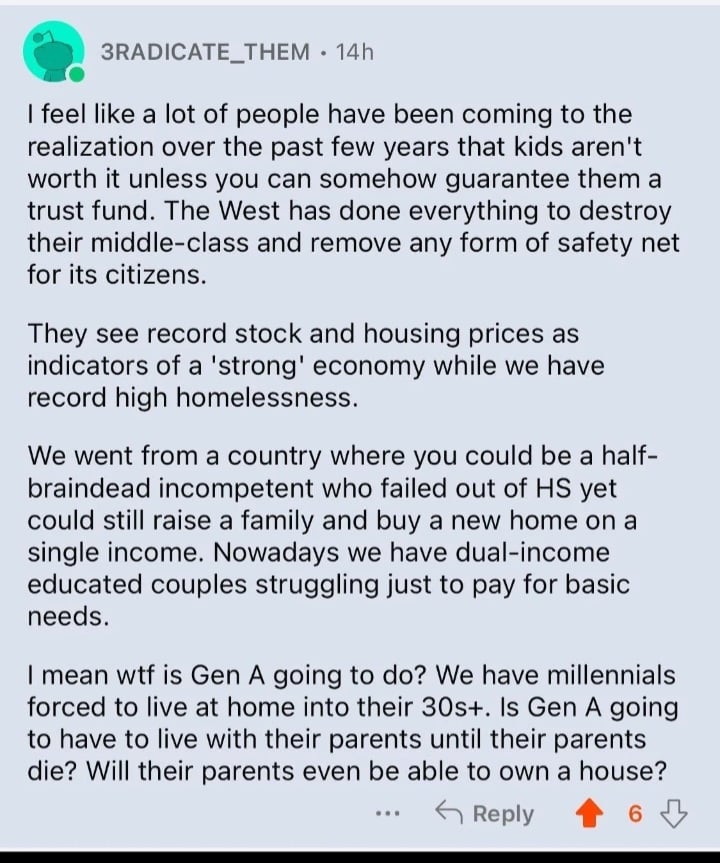this post was submitted on 04 Feb 2024
1453 points (96.7% liked)
A Boring Dystopia
10014 readers
1707 users here now
Pictures, Videos, Articles showing just how boring it is to live in a dystopic society, or with signs of a dystopic society.
Rules (Subject to Change)
--Be a Decent Human Being
--Posting news articles: include the source name and exact title from article in your post title
--If a picture is just a screenshot of an article, link the article
--If a video's content isn't clear from title, write a short summary so people know what it's about.
--Posts must have something to do with the topic
--Zero tolerance for Racism/Sexism/Ableism/etc.
--No NSFW content
--Abide by the rules of lemmy.world
founded 2 years ago
MODERATORS
you are viewing a single comment's thread
view the rest of the comments
view the rest of the comments

Ok so. Shares of ownership are open only to employees. How does this company get external investment? I suppose outside entities are allowed to invest with an expectation of a return on investment?
Stock is used to raise money for investment. When that investment has been covered and profit acheived, the stock should immediately drop in value or be bought back AS OPPOSED to being used for government manipulation and golden parachutes for CEOs who did very little work in making the company successful. If the CEO fails, the company fails. Paying multiple millions to CEOs who were not involved in the building of the company but were only brought in after the company failed is a gross misappropriation of shareholder funds. The new guy should get a salary of not more than 40 times what the lowest employee gets and then get stock options only after the stock and the company has been saved.
What do you mean by this?
Sorry, I swear I'm not doing that Just Asking Questions thing where I keep asking questions until you get tired and leave, I'm legitimately curious. Because the way stock works now is, there's an initial offering of a company's stock, at say $1 a share. Then anyone who has a share can re-sell it to people who think the value of the company is going to go up, say someone who thinks it will be worth $1.50 a share. Anyone who buys shares hopes to re-sell them at a greater value, so as a whole, this market of investors is, in aggregate, demanding ever-increasing value from every share of every company.
There's no one particular target where a company can say "we did it!" and settle the permanent value at like $3 a share or something. So I'm wondering how you would define "profit achieved" in this context, and what should happen to those shares at that point. Does the company buy them back? If the company is buying them back at $3 a share and someone just bought a share for $3.10, why would they sell it back to the company for $3? Will they be forced to sell?
The stock market has repeatedly proven that it is driven by inflated and imaginary "values". Any argument in favor of unregulated stocks falls flat in the face of that evidence. At some point the company has to pick utself up by it's bootstraps and start paying it's own way instead of putting the public at risk over hyped "value". It's an entirely fraudulent system designed to crash on the reg and allow a tiny percentage of people to gather and hoard devalued property.
Stocks were originally about getting businesses started and people employed. They are the opposite of that now. Some stocks are actually managed to make businesses fold and put people put of work. This is the job of hedge fund managers (a business that should not exist) and was the entire point behind the GameStop rally.
Okay, but what sort of regulation? How would stocks work differently than they do now?
The value would reflect ACTUAL productivity and not the amount that CEOs pay themselves.
Watch Tesla slow burn over this exact issue. Hopefully every company engaging in greedflation has the same fate.
How do you determine that value?
Currently the value of a stock is whatever someone is willing to pay for it. Who decides what the value should be, in your scenario? A government department?
If necessary, yes. Otherwise its just fraud. "Whatever someone is willing to pay" doesnr make a thing valuable; it just makes the buyer stupid. If I sell you a rusty old tricycle for $6000 just because you have a psychotic nostalgia for it, the value of old rusty tricycles doesnt become $6000.
Elon bought Xitter at what, $45/share? It was never worth that much...he tried to manipulate the stock value (i. e. commit fraud) and a government official forced him to commit.
That would work maybe...so you'd have a government body to assess companies like houses are currently assessed. Sounds expensive though. We'd need to raise taxes, which is probably a good thing anyway
It wouldn't involve raising taxes as much as it would involve collecting taxes in the first place from billionaire assholes hiding their wealth. This is a recent problem and is easily fixed.